One of the goals of information architecture is making it possible for people to easily find what they’re looking for. As a large and complex information environment, Amazon.com provides lots of examples of how to do it right – and how to do it wrong. This post highlights one of the latter.
Context: this year, I’m immersing myself in the humanities. This entails reading a lot. But not just any books: I’m following a prescribed curriculum. They’re mostly classic works of literature, which are available cheaply or for free via services like Standard Ebooks.
But in some cases, the work I want to read isn’t available for free. For example, this week, I’m reading The Odyssey. Yes, Standard Ebooks has a version available for free. But I want to read the Fagles translation.
Why? Because I already own the audiobook. (Highly recommended, BTW – it’s read by Sir Ian McKellen.) While I’m not planning to use audiobooks for this project, Homer is an exception. These poems were originally oral, so the audiobook might be closer to the original experience.
Amazon provides a great service called Whispersync for Voice. If you own both the audiobook (via Amazon-owned Audible) and Kindle versions of a book, you can switch between them. Any progress you make on one will be reflected in the other.
I use this feature a lot. That is, when it’s available. Not all books have it. But the version of The Odyssey I own does have Whispersync for Voice. I know that because it’s highlighted as one of the features in the book’s page in Audible.
To enable it, I must own the right Kindle edition of this book. And here lies the problem: it’s not easy to find the right version of this book on Kindle.
The obvious solution would be a link from the Audible version of the book to its corresponding Kindle version. Alas, I couldn’t find one.
Another answer might be to search for the book in Amazon.com. But that doesn’t work either. As with many public domain books, there are lots of editions of The Odyssey available on Amazon.
The Fagles translation is published by Penguin. It’s the default result when I search for the odyssey fagles in Amazon:
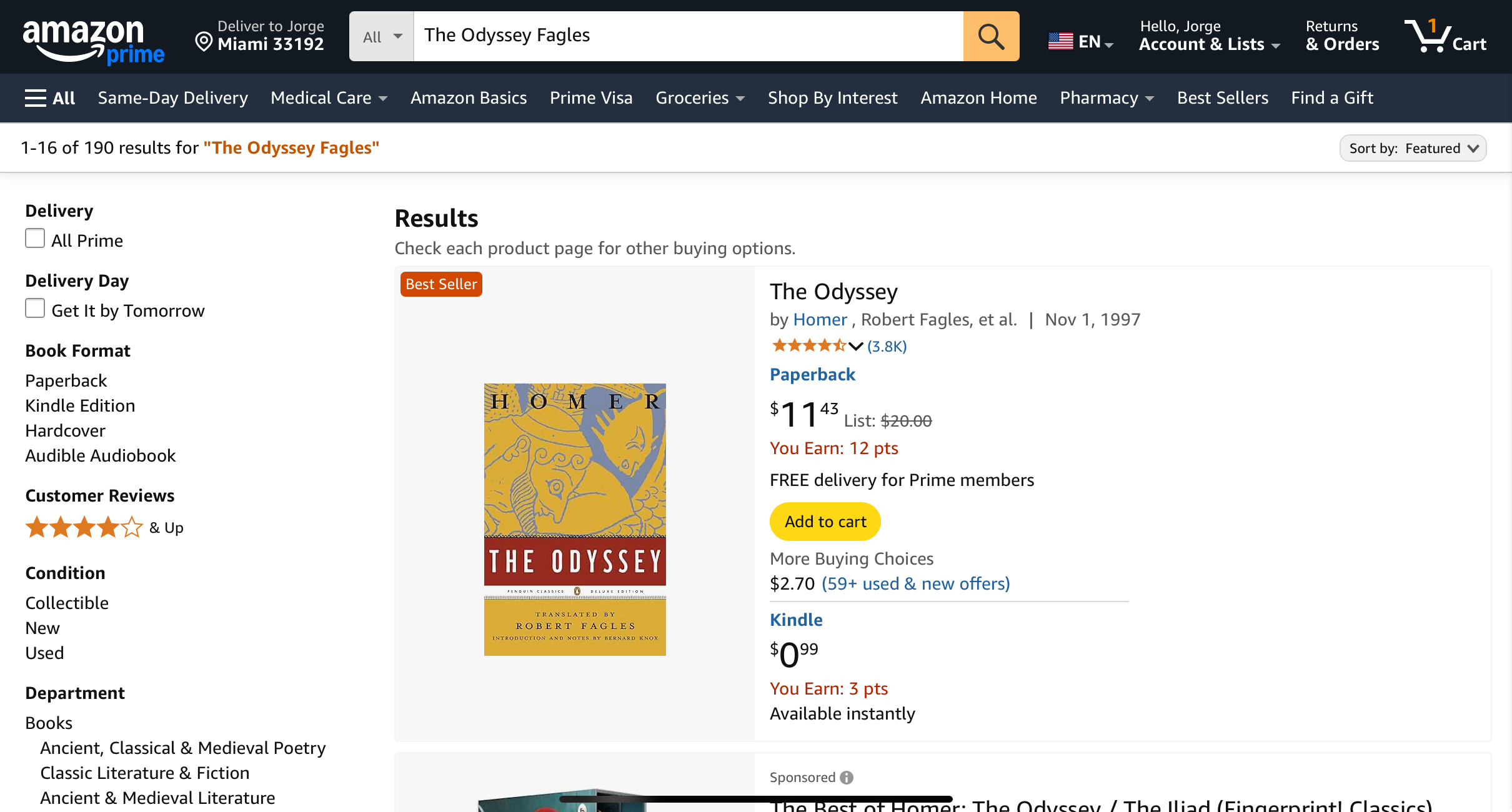
That’s the correct book. But this result defaults to the paperback. Notice that it shows there’s also a Kindle version and that it costs $1. Ostensibly that’s the one I want. But when I click through, I’m taken to a version with a different cover:
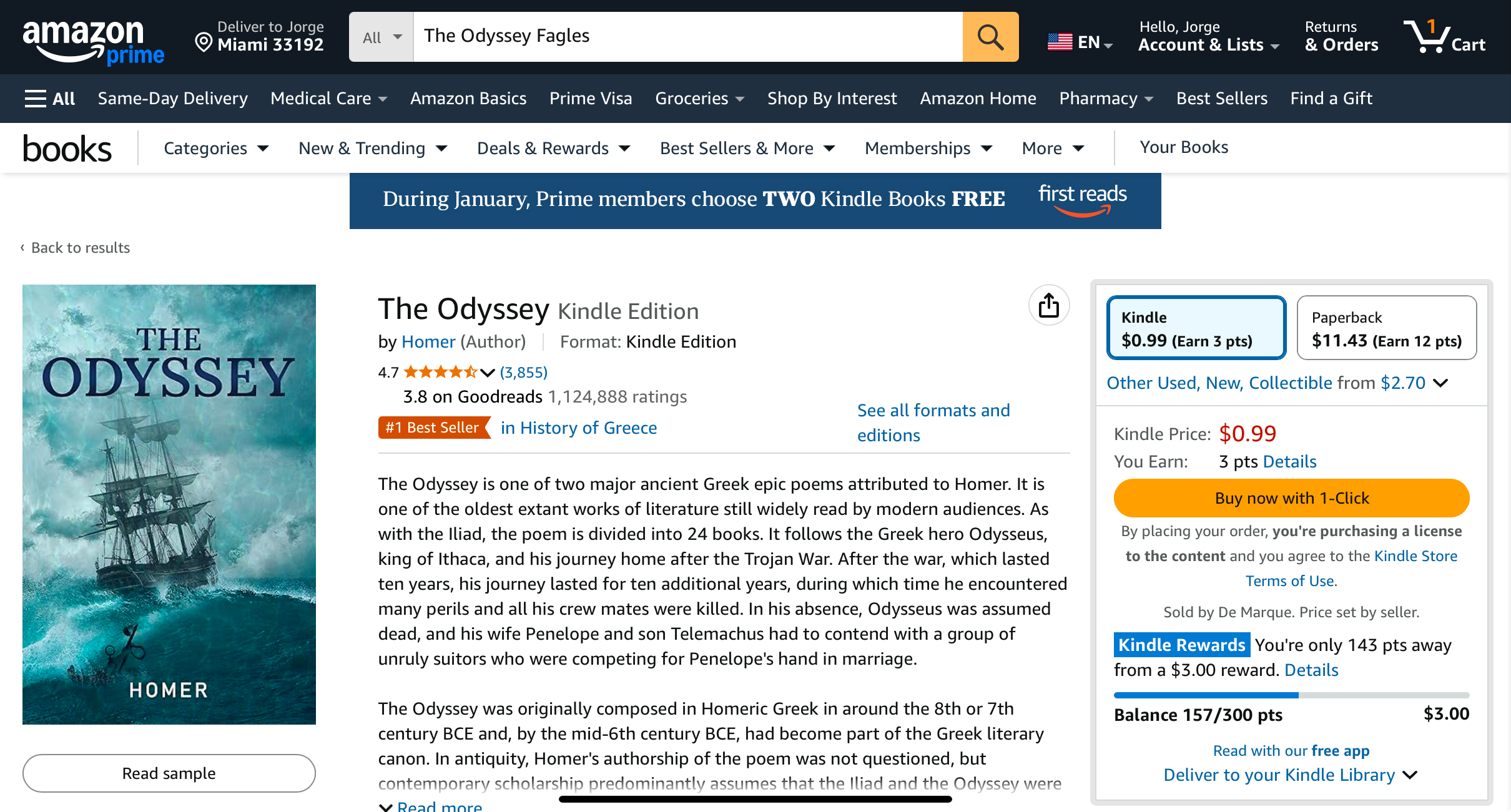
That’s not the Penguin/Fagles version of the book, but one of several cheap versions in the store. As with many classic books, it’s based on an older translation that is in the public domain. That’s why it costs $1.
That won’t work for me. I want the Fagles translation; the one with Whispersync. What to do?
I tried several things. First, I tried searching for the odyssey kindle fagles and the odyssey kindle penguin. Those didn’t work; they only showed the cheap versions. I also tried using the “Kindle Store” filter in the search box, but that didn’t do it either.
Amazon.com lists my audiobook version. Its page has a button to show other editions, including Kindle. Alas, it lists two generic versions, not the one published by Penguin. Frustrating!
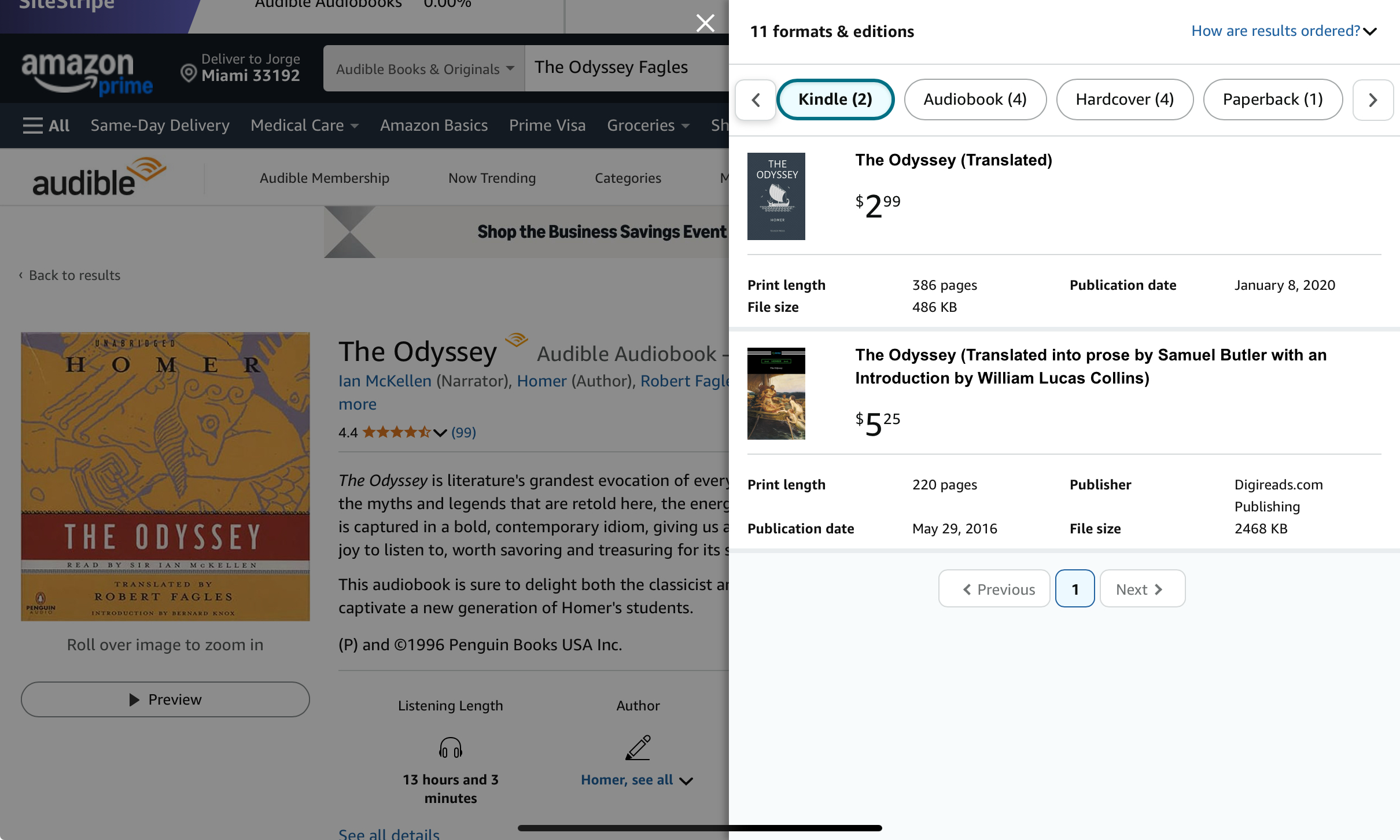
Finally, I had a thought: “Surely Penguin’s website has a page for that book. I wonder if the Kindle version is linked from there?” And sure enough: Penguin does have a page for this book, and it includes links to several ebook retailers:
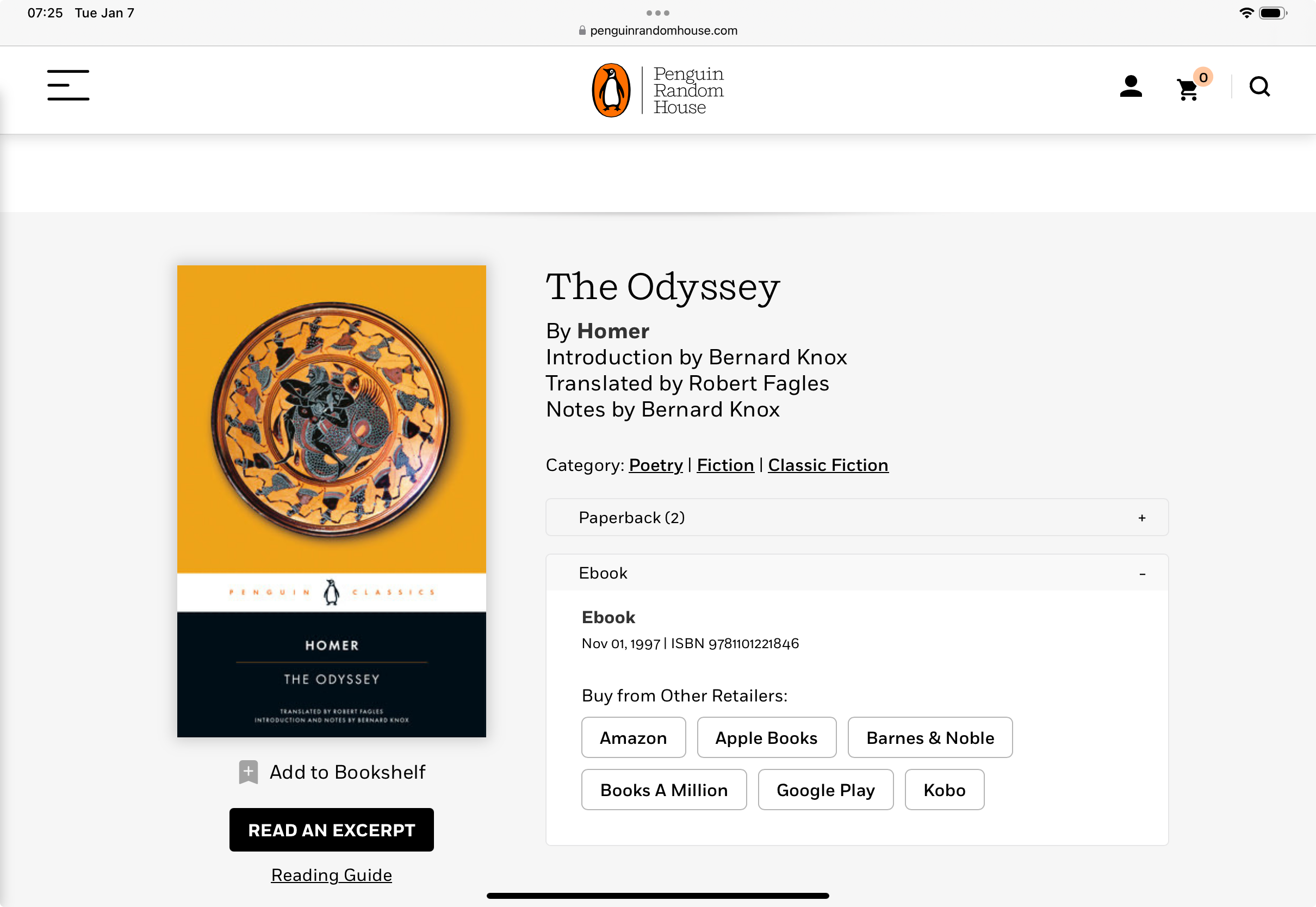
I followed the Amazon link and got to the correct Kindle page.
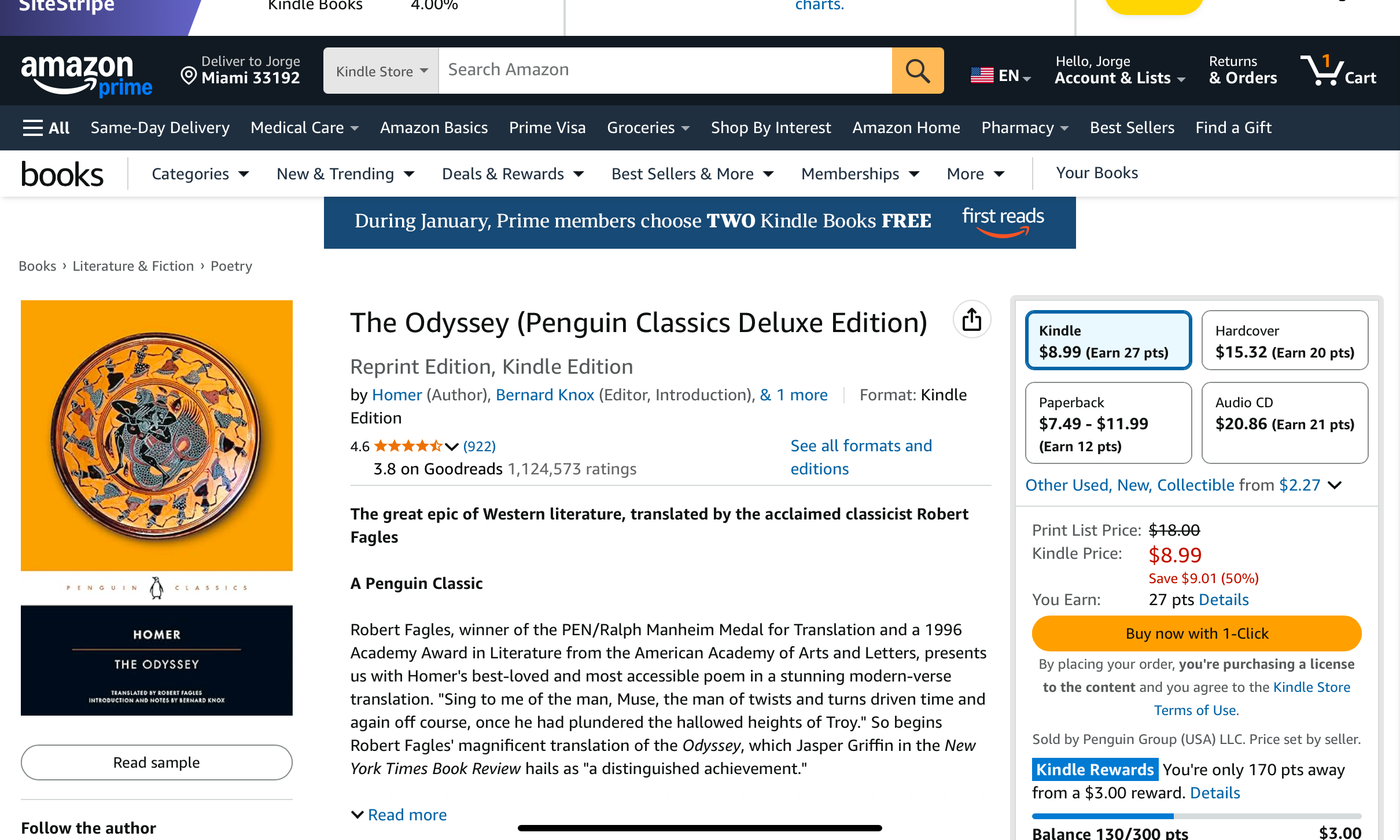
Which is to say: the correct edition exists in the system, but users have to put in a lot of effort to find it.
This was far from ideal. I bet most people wouldn’t go through the trouble. Yes, they’d find a version of the book, but not the one they’re looking for. Frustrating. But if I was Penguin, I’d be pissed. Amazon hides their edition of The Odyssey even when customers explicitly search for it. They’re doing both a disservice.
Without knowing what’s happening behind the scenes, I believe there should be an abstract container for each product. This container would reference different editions so that the page for The Odyssey could list different editions.
I get it, there might be feasibility issues. The team at Amazon might have considered this option but deemed it too complicated – either for users or for content managers. Or perhaps restructuring the CMS is too big of an ask, with little payoff. (This is an edge case, for sure.)
In any case, I consider this a failure of information architecture. IA isn’t just about navigation bars and taxonomies: lots of other information structures help or hinder the user. This is an example of the latter.